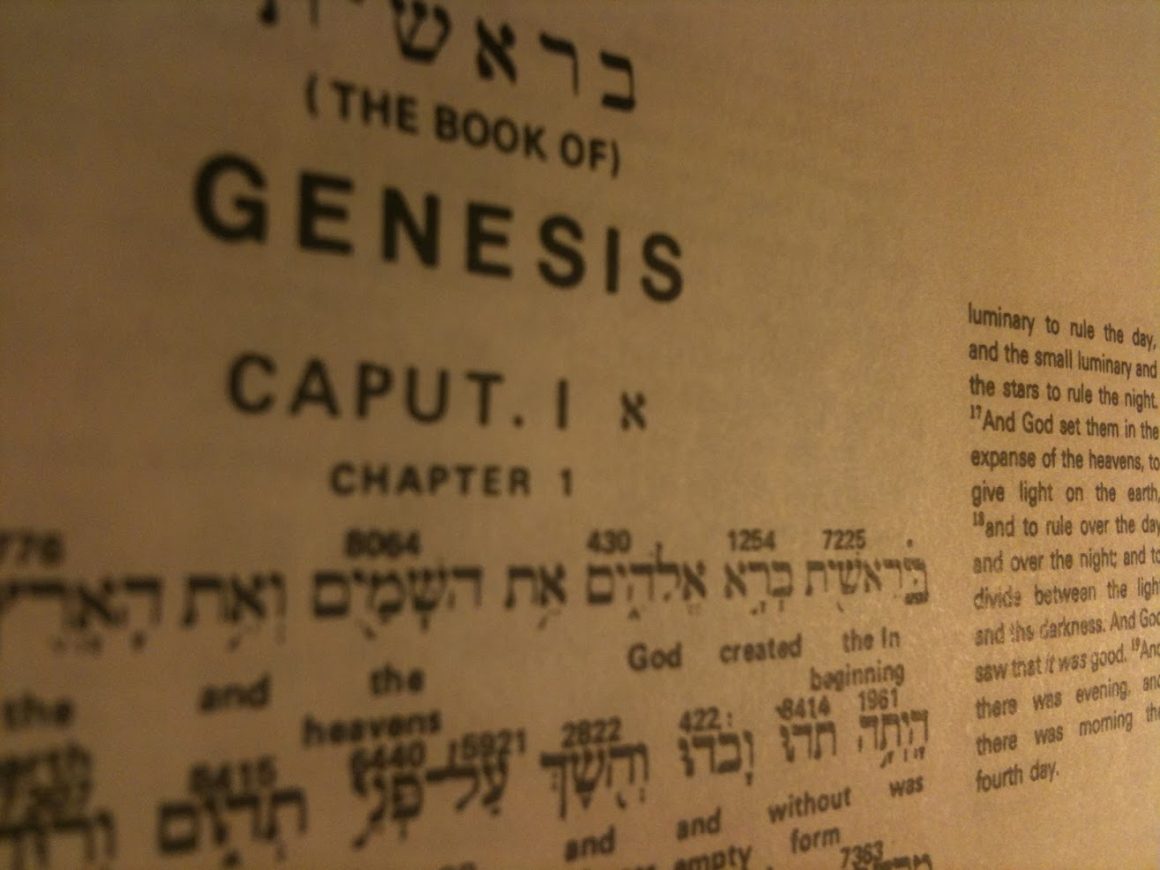Many good books start with very captivating first lines; for instance, “It was the best of times, it was the worst of times” (A Tale of Two Cities, by Charles Dickens) or, “There once was a boy named Eustice Clarence Scrub, and he almost deserved it” (The Voyage of the Dawn Treader, C. S. Lewis). These are brilliant opening lines designed to catch our attention. We are baited by the clever choice of words that encapsulate an important element to the story which begs for an explanation. Simply put, our curiosity compels us to read on. How about the first line in the bible? Has that ever really caught your attention? It should.
The first words in the bible are so familiar it is easy for them to escape our notice, “In the beginning God created the heavens and the earth,” (Gen.1:1).
Nice, okay let’s read on… Wait, there is something significant to those first words that should cause us to pause and take notice. In fact, two literary elements that set this opening statement apart from the rest of the text. First, the opening statement is made in seven words. While this is not obvious in an English translation (ten words) it is important to remember that the original language that God chose to reveal his word to us is Hebrew; and in Hebrew the opening line is seven words. Okay, so what’s the big deal? As it turns out the number seven is used in the bible to signify completion; for instance the creation was completed in seven days. So the opening line written in seven words is meant to catch our attention as one complete thought. Secondly there is a linguistic device in Hebrew that introduces the following line like the beginning of a story. Having declared the grand opening statement with the first seven words the story begins. So it might be better rendered in English something like this,
In the beginning God created the heavens and the earth. (period!)
Now, the earth was null and void….
My point is that the first seven words of the bible are more like a declarative statement rather than an historical explanation. The implications of the opening line are meant to frame our thinking as we read the rest of scripture. In a sense it sets a boundary line for our understanding of everything. God’s supremacy as the Creator is something we are confronted with in the opening words of the bible. It is the first theme presented in what could be considered the prologue of this epic meta-narrative. Genesis 1-11 maps out quite a few biblical themes that are meant to guide our thinking as we read the rest of the bible. We could call this section of scripture “first things”. As you read on try to take note of the themes that are depicted in God’s created order: themes like; created in God’s image and likeness, intimate and unashamed, rebellion and broken relationship, judgment and God’s provision. These themes set the stage for the story that unfolds with the call of Abram through whom God would work out his plan of redemption in Jesus Messiah; the one we read about in Mark’s gospel.
I pray that you will grasp the magnificence of God’s mighty work which he has planned from the beginning.



